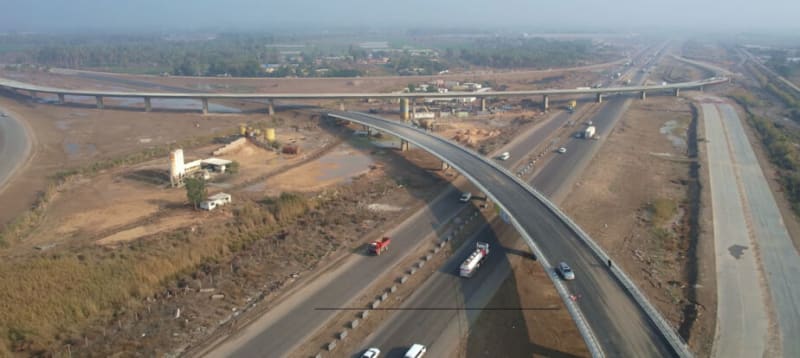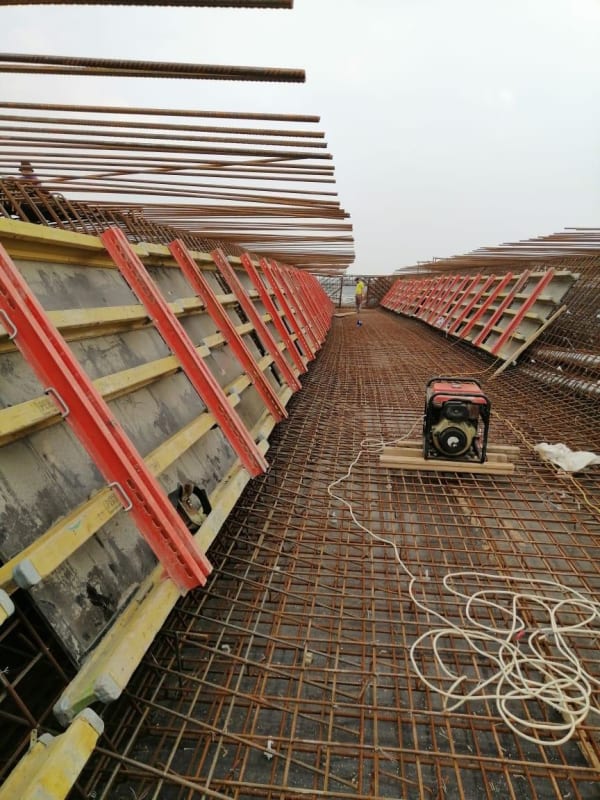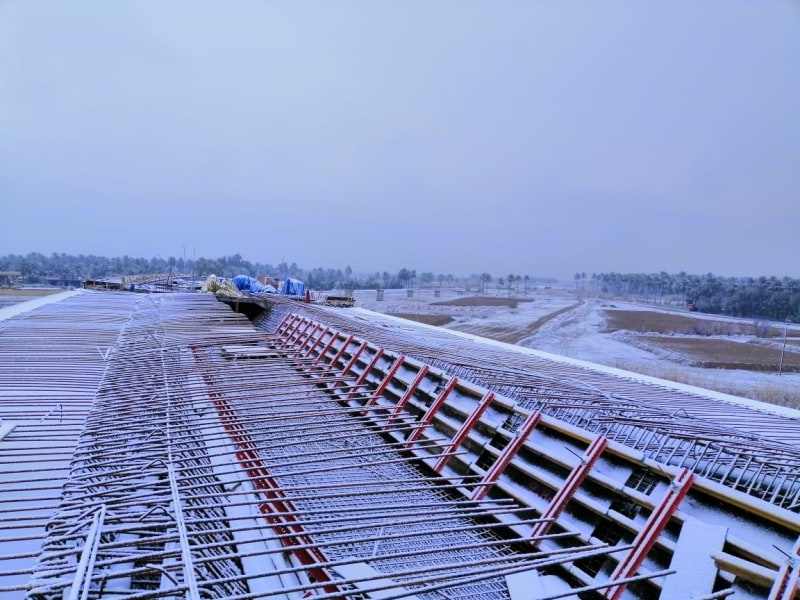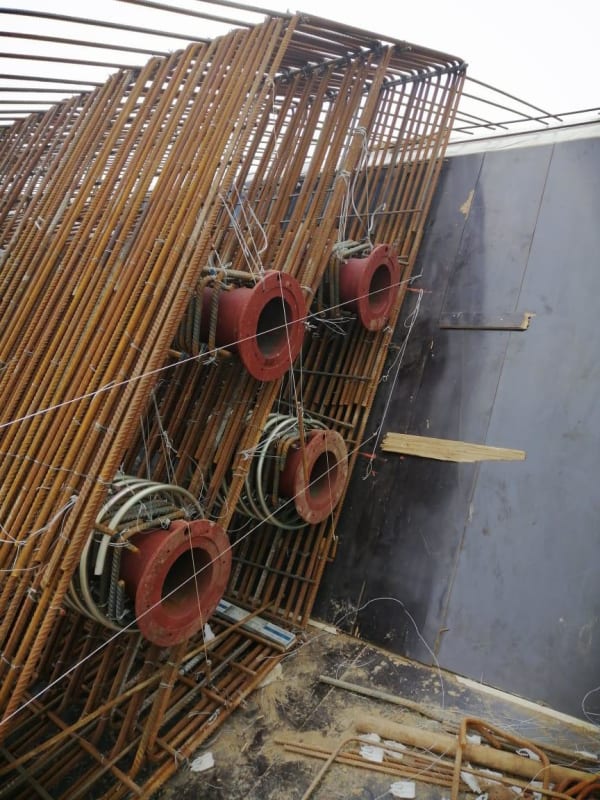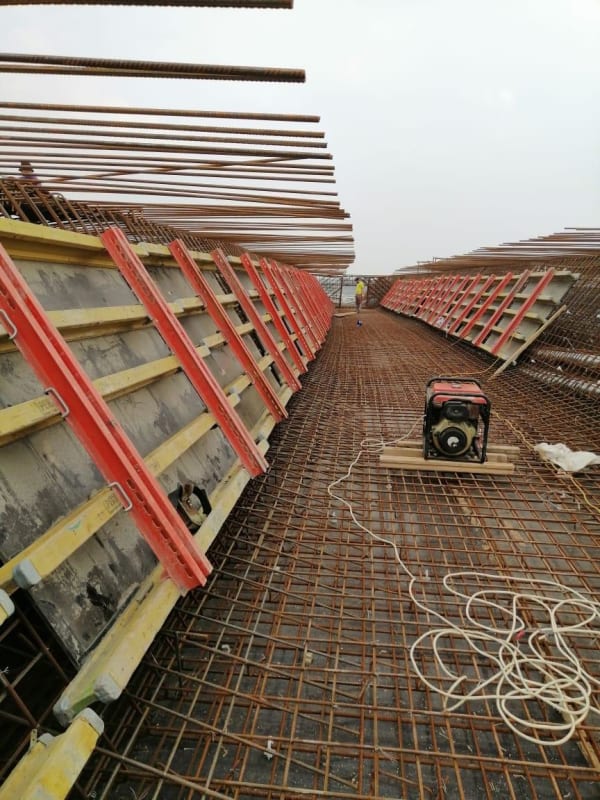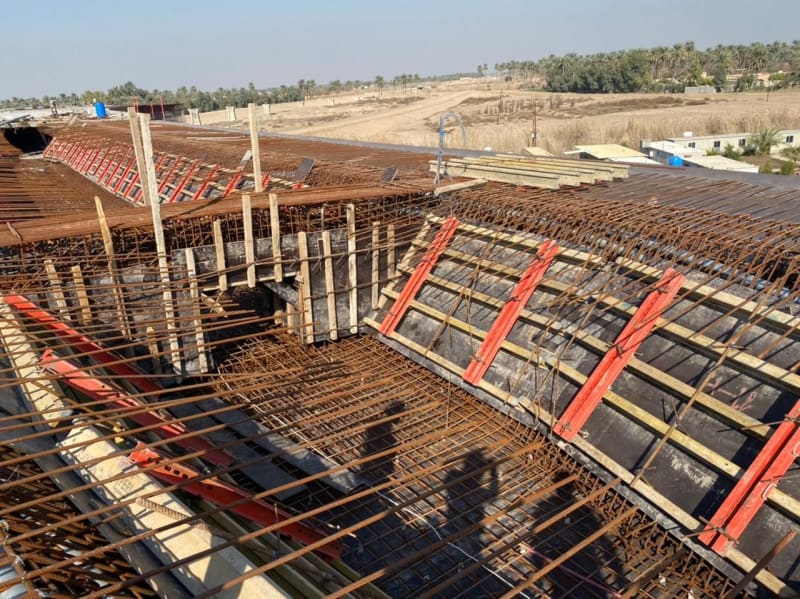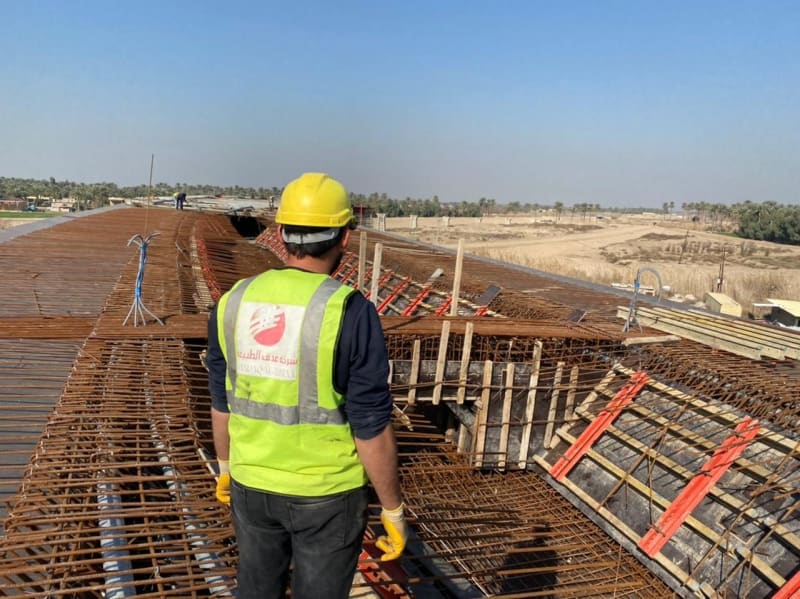Not that I'm aware of... The CRSI used to comment that a light, tight rust was beneficial... from another source.
"Q. All of the foundation specs we build on require rebar to be free of rust and mill scale. For years this hasn’t been an issue, until recently when a project manager called us on it. All we can think to do is wire brush the entire lot of rebar. Is this really necessary?
A.Tim Fisher responds: Fortunately, there are a couple of standards you can cite in your defense. The ASTM standard for deformed steel reinforcement (A706) and the Concrete Reinforcement Steel Institute (CRSI) Manual of Standard Practice both give the same recommendation: Reinforcing bar with rust, mill scale, or a combination of both is satisfactory, provided the minimum dimensions, weight, and height of the deformations (the formed protrusions on the bar) of a hand-wire-brushed test sample are not less than the values specified in the standard. In other words, if the rust or mill scale is light, it will not affect the bond to the concrete.
In fact, studies have shown that mill scale and light rust enhance the bond between concrete and steel.
Tim Fisher is the field engineering editor for Aberdeen’s Concrete Construction magazine."
but I don't know what studies...
and another source:
"An experimental investigation on the relationship between corrosion of reinforcement and bond strength in pull-out test specimen has been conducted to establish the allowable limit of rust of reinforcement in the construction field. The reinforcing bars used in this study were rusted before embedded in pull-out test specimen. The first component of this experiment is to make reinforcing bar rust electrically based on Faraday's theory to be 2, 4, 6, 8 and 10% of reinforcing bar weight. For estimation of the amount of rust by weight, Clarke's solution and shot blasting were adopted and compared. Parameters also include 24 and 45 MPa of concrete compressive strengths and diameter of reinforcing bar (16, 19 and 25 mm). Pull-out tests were carried out according to KSF 2441 and ASTM C234 to investigate the effect of the degree of rust on bond strength. It is found from the test results that the test techniques for corrosion of bar used in this study is relatively effective and correct.
Results show that up to 2% of rust increases the bond strength regardless of concrete strength and diameter of reinforcing bar like the existing data. It might result from the roughness due to rust. As expected, the bond strength increases as compressive strength of concrete increases and the diameter of bar decreases."
and
"Reinforcing steel samples of six different sizes, each of three varying compositions, were exposed to the atmosphere for periods up to 16 months.
The effect of rusting on the yield strength, ultimate tensile strength, and bond strength was investigated. Results indicate that rusting of reinforcement due to atmospheric exposure for periods up to 16 months does not affect the strength properties. The bond stress values for the rusted reinforcing steels after 16 months of atmospheric exposure were greater than the allowable ACI 318-63 and BS CP 110 values. The maximum weight loss after 16 months of atmospheric exposure was 16 mg/cmý, which corresponded to an average reduction in diameter of 0.53 percent."
-----*****-----
So strange to see the singularity approaching while the entire planet is rapidly turning into a hellscape. -John Coates
-Dik
